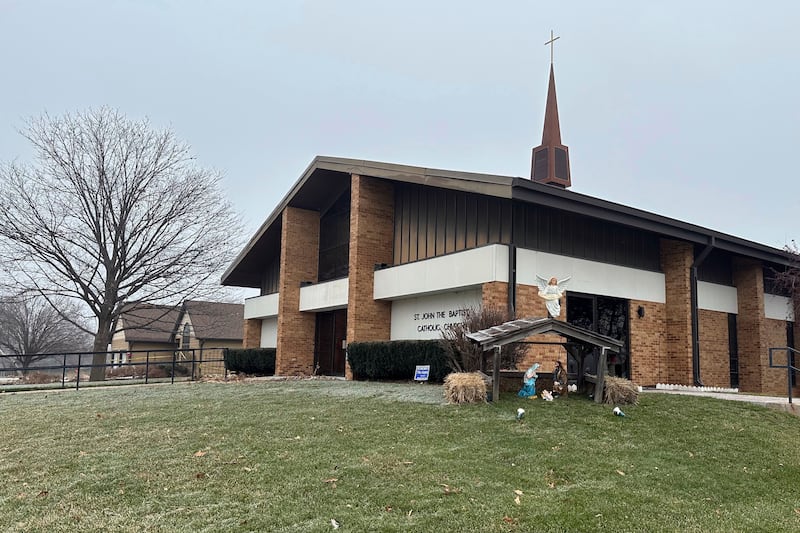Most of us don’t want politics from the pulpit. So why, citing religious freedom concerns, did the IRS advance an interpretation of the law that allows churches to do just that?
For years, it was understood that the Johnson Amendment — a law that ties the tax-exempt status of certain non-profits to certain restrictions on their political involvement — prohibited politics from the pulpit. To keep tax-exempt status, churches must “not participate in, or intervene in … any political campaign on behalf of (or in opposition to) any candidate for public office.”
But in a break from the past, the IRS has stated in a recent court filing that when “a house of worship in good faith speaks to its congregation … concerning electoral politics,” it does not “run afoul of the Johnson Amendment” “any more than does a family discussion concerning candidates.”
Since the IRS’ filing which indicated its current position, commentators from all corners have cried out, arguing the IRS’ take on the law poses risks to separation of church and state, while threatening further political polarization, and enabling dark money campaign contributions.
Although the IRS has not issued any formal regulation regarding its position, and no court has held its interpretation of the law to be correct, some commentators have gone as far as to state that the IRS has “reversed decades of legal precedent” by merely filing a document in a federal trial court.
Yet in all this commentary regarding the potential impacts of the IRS’ position, little has been said about the religious freedom arguments made in the case against the IRS.
The IRS was not always friendly to softening the Johnson Amendment, even in the case against it brought by National Religious Broadcasters and others that claimed the amendment burdens religious freedom. In late December 2024, during the tail end of the Biden administration, the IRS filed a motion to dismiss the entire case, arguing, in part, that neither the First Amendment nor the Religious Freedom Restoration Act prohibited the government from conditioning a church’s tax-exempt status on its political activities.
But during the new Trump administration, the IRS changed course. Instead of arguing for dismissal of the case, the IRS proposed a “consent judgment” — a method of voluntarily ending the case on agreed-upon terms the court enters. In this case, those terms included an interpretation of the Johnson Amendment that permits churches to endorse candidates.
The IRS’ shift in case strategy came with a shift in its arguments regarding religious freedom. Earlier, the IRS argued that churches’ religious free exercise rights were not burdened by the Johnson Amendment, so there was no need to review the First Amendment or the Religious Freedom Restoration Act’s strict frameworks for religious freedom violations.
As the argument went, the Johnson Amendment does not require churches to engage in an act against their faith nor does it prohibit them from acting according to their faith, as they are free to endorse candidates if they want. Doing so just comes with taxes.
However, the IRS’ joint statements with the plaintiffs in their later proposed consent judgment more closely align with the religious freedom claims made by the plaintiffs from the start. The consent judgment, citing a newly issued U.S. Supreme Court decision, states that disadvantaging churches whose doctrines compel them to preach about politics and favoring churches whose doctrines permit them to remain neutral in political matters, “would create serious tension with the First Amendment’s Establishment Clause.”
In their legal complaint, the plaintiffs had argued the Johnson Amendment was motivated by and enforced through religious hostility, that the law does not impose the same tax-exempt limitations in other situations, and that the Johnson Amendment substantially burdens churches’ religious liberties by subjecting them to drastic financial consequences.
Because of the parties’ agreed-upon consent judgment, which is limited only to the parties in the case, it is unlikely that the judge in the present lawsuit will decide which of the parties’ religious freedom arguments prevails.
However, if critics’ predictions are correct, and politics become deeply entwined with preaching because of the IRS’ Johnson Amendment interpretation, the current lawsuit is likely not the end of legal battles over churches and tax-exempt status. Several organizations dedicated to policing the separation of church and state vow to oppose the IRS’ position.
And even for more conservative religious freedom advocates, there is a fear that backlash to the IRS’ position could reinforce a negative public view of religious freedom: namely, that religious freedom is not a tool to protect fundamental rights or to help religiously diverse Americans to participate on equal footing in our society, but an unfair exception to rules that everyone else has to obey.
If that negative view prevails in a future presidential administration, it is not difficult to imagine the IRS wielding the Johnson Amendment with more force, targeting the tax-exempt status of disfavored groups, much like the Trump administration has shown can be done in higher education.
Whatever occurs, the fact that the Johnson Amendment and its religious liberty implications swing on the pendulum between republican and democratic administrations is a sign of more culture war fights to come.
Tanner Bean is a partner at the Salt Lake City law firm of Fabian VanCott. His practice focuses on religious liberty, employment law, and appeals. The views expressed are his own.


